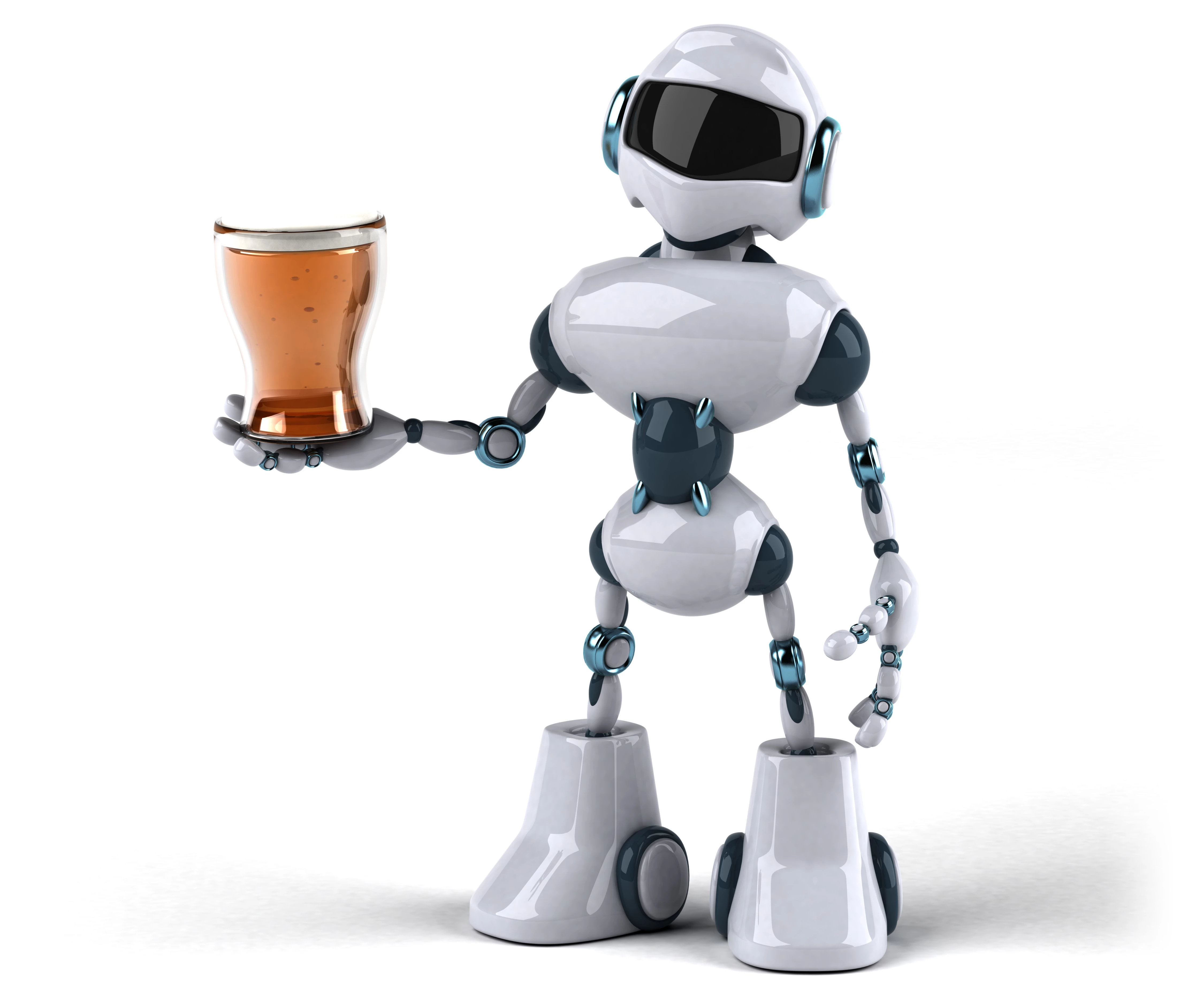-
Medical journals
- Career
You wouldn't believe what our AI can already do! "Snapshots" from research – 2024/8
10. 4. 2024
Will we soon be living among robots? Artificial Intelligence (AI) has learned to design antibodies, diagnose tuberculosis from coughing sounds, and in its spare time, improve beer. If that scares you a bit, don't worry – in today's edition of "Snapshots," you'll also learn how a horrifying experience can turn into generalized anxiety.

Artificial Intelligence Can Design Antibodies
Scientists from the University of Washington in Seattle have managed to design entirely new antibodies using generative AI. Conventional antibody design employs so-called brute-force approaches, which involve immunizing animals and screening vast numbers of molecules. Therefore, the research team modified their previously published AI tool for protein design, RFdiffusion, and trained its neural network on thousands of experimentally determined structures of antibodies attached to their target molecules. This way, they succeeded in designing a large number of different antibodies, which they then prepared and tested in the lab.
The road to clinical use is still long – only about 1 in 100 designed antibodies was functional, and they did not bind particularly strongly to the target structure. However, the study, which has not yet undergone peer review, managed to demonstrate that antibody design using AI is fundamentally possible.
Sources:
1. Bennett N. R., Watson J. L., Ragotte R. J. et al. Atomically accurate de novo design of single-domain antibodies. bioRxiv 2024.03.14.585103, doi: 10.1101/2024.03.14.585103.
2. Callaway E. ‘A landmark moment’: scientists use AI to design antibodies from scratch. Nature News 2024 Mar 19. Available at: www.nature.com/articles/d41586-024-00846-7
How to Diagnose by the Sound of a Cough?
A team led by researchers from Google has developed a tool using machine learning techniques that can detect and monitor health status based on sounds made while coughing or breathing. The system, trained on millions of short audio clips, might one day be used by doctors for diagnosing tuberculosis or COVID-19.
The authors used a unique approach for training their model – the initial dataset consisted of more than 300 million short clips of coughing, breathing, throat clearing, and other human sounds freely available in videos on the YouTube platform. The data was not labeled, and the algorithm used self-supervised learning in a system similar to how ChatGPT learns. This method provided the HeAR (Health Acoustic Representations) tool with a very broad base, allowing it to be finely tuned using a relatively small set of representative cough samples or other disease-related sound manifestations.
Sources:
1. Baur S., Nabulsi Z., Weng W. H. et al. HeAR – Health Acoustic Representations. arXiv 2024 Mar 04 : 2403.02522, doi: 10.48550/arXiv.2403.02522.
2. Lenharo M. Google AI could soon use a person’s cough to diagnose disease. Nature News 2024 Mar 21. Available at: www.nature.com/articles/d41586-024-00869-0
Can a Computer Brew Better Beer than an Experienced Brewer?
Liquid bread, the most popular drink in the Czech Republic, is available in many different flavors and colors. Experienced beer lovers can joyfully discuss for hours about the fullness of flavor, bitterness, mouthfeel, methods of pouring, or the cleanliness of pipes at a certain pub. Although there are so many different beers that everyone can find the one they like, producers sometimes still struggle to meet the specific needs of their customers. A team of Belgian scientists has now decided to help them using modern technology.
The authors of the cited study identified more than 200 different chemical compounds that are active flavor carriers in 250 different commercially available beers of a total of 22 types. They compared their data with the opinions of professional tasters and customer ratings. They then assigned various sensory characteristics such as sweetness, sourness, or fullness of flavor to each compound. Using these parameters, they trained a machine learning model to predict which chemical profiles would be most appealing to customers. The researchers then modified the recipe of existing beers (both alcoholic and non-alcoholic) and presented these beverages to a panel of experts, who consistently found them to be sweeter, fuller, and overall tastier than the original recipe.
Source: Schreurs M., Piampongsant S., Roncoroni M. et al. Predicting and improving complex beer flavor through machine learning. Nat Commun 2024 Mar 26; 15 (1): 2368, doi: 10.1038/s41467-024-46346-0.

How Does the Brain Become Overly Anxious?
Fear helps our species survive. However, terrifying events can leave marks on the brain, causing us to feel anxious long after the danger has passed. We are now a step closer to understanding the mechanism of biochemical changes that lead to so-called generalized anxiety.
A team of neuroscientists from the University of California, La Jolla, studied on a mouse model what changes occur in the brain after the animal felt genuinely threatened. They discovered that specific neurons in the nucleus raphe dorsalis begin to secrete an inhibitory neurotransmitter − gamma-aminobutyric acid (GABA) − instead of the usual activator glutamate after such an experience. However, if mice were injected with a GABA synthesis inhibitor, they did not develop generalized anxiety after being exposed to extreme stress.
Incidentally, similar changes in neurotransmitter composition were found post mortem in the corresponding part of the brain of individuals suffering from post-traumatic stress disorder. This discovery may thus open the door to new interventions that could potentially reverse the process of fear generalization in the future.
Sources:
1. Li H. Q., Jiang W., Ling L. et al. Generalized fear after acute stress is caused by change in neuronal cotransmitter identity. Science 2024 Mar 14; 383 (6688): 1252–1259, doi: 10.1126/science.adj5996.
2. Hen R., Schacher S. Switching on generalized fear. Science 2024 Mar 14; 383 (6688): 1180–1181, doi: 10.1126/science.ado3464.(este)
Did you like this article? Would you like to comment on it? Write to us. We are interested in your opinion. We will not publish it, but we will gladly answer you.
Popular this week- AI Will Help Personalize the Treatment of Atrial Fibrillation
- Czech Gastroenterology Keeps Up with the Times. For 80 Years
- Vaccination Is Entering a New Era Thanks to Innovative Technologies
- Why Endometriosis Requires the Principles of Precision Medicine
- “Bites” from Clinical Research – 2026/4
Login#ADS_BOTTOM_SCRIPTS#Forgotten passwordEnter the email address that you registered with. We will send you instructions on how to set a new password.
- Career

